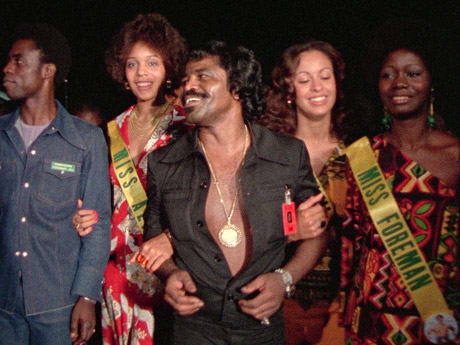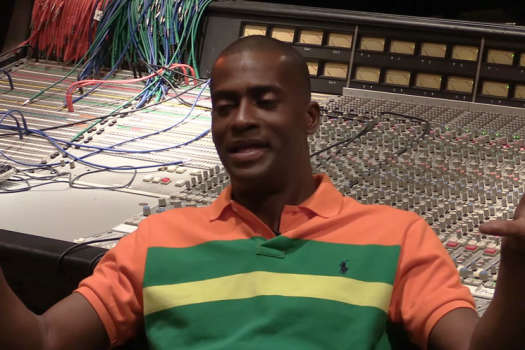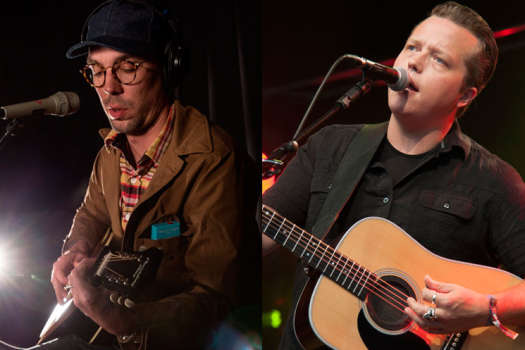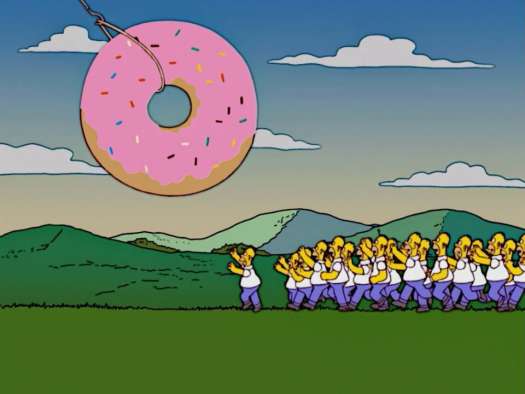The Rumble in the Jungle is the legendary boxing showdown between then-world heavyweight champ George Foreman and former champ Muhammad Ali that took place in Zaire, the heart of post-colonial Africa. Ali was staging his comeback after being barred from competing for opposing the Vietnam War, and the black power he symbolized was about to wane. The drama, intrigue and stakes of this renowned fight in the fall of 1974 are brilliantly captured in Leon Gast's 1996 documentary, When We Were Kings. Watch that before seeing this film.
Soul Power chronicles the three-day music fest that was supposed to complement the fight in September 1974, but a training injury to Foreman delayed the actual match for a month. The fest was like a black Woodstock, but international in scope, spanning the blues, samba and African music, as well as soul. The Spinners, Bill Withers, B.B. King, Miriam Makeba, Celia Cruz and the Fania All-Stars, and headliner James Brown all deliver infectious performances that will make it hard for moviegoers to sit still.
The highlights are many: King's "The Thrill Is Gone" features a searing guitar solo; Makeba's "Click Song" bridges African and American culture in five taut minutes; the Fania All-Stars deliver an explosive drum solo; Bill Withers' love songs are touching; and James Brown's raucous set closes the film but ends abruptly after only a few numbers. Another highlight is the candid footage of the all-out samba jam aboard the plane, which looks more like a party.
The first part of the film tries to establish the context of the fight and concert but the title cards flashing on screen don't adequately convey the stakes (that this was Ali's big comeback) or the setting (Zaire's dictator, Mobutu, was turning his country into a brutal police state). Shot verité style with no additional voiceovers or contemporary interviews, Soul Power does capture Ali courting the press with his typical fire and charm. "The only reason the cameras are on me is because I'm the world champion. Otherwise, I'm just another negro!" he declares, summing up the state of Black Power in the mid-'70s.
Indeed, the Rumble in the Jungle represents one of the last milestones of the Civil Rights Movement, literally connecting black Americans with their homeland, but taking place right before it, and the rest of America, slipped into the post-Watergate malaise. Today, the film is poignant, given that Parkinson's Syndrome has robbed Ali of his speech and that James Brown has passed.
Because of its shortcomings in storytelling, Soul Power is really a distillation of a stunning concert, a snapshot of international black music in 1974. It's a pleasure to watch on the big screen with booming sound.
(Mongrel Media)Soul Power chronicles the three-day music fest that was supposed to complement the fight in September 1974, but a training injury to Foreman delayed the actual match for a month. The fest was like a black Woodstock, but international in scope, spanning the blues, samba and African music, as well as soul. The Spinners, Bill Withers, B.B. King, Miriam Makeba, Celia Cruz and the Fania All-Stars, and headliner James Brown all deliver infectious performances that will make it hard for moviegoers to sit still.
The highlights are many: King's "The Thrill Is Gone" features a searing guitar solo; Makeba's "Click Song" bridges African and American culture in five taut minutes; the Fania All-Stars deliver an explosive drum solo; Bill Withers' love songs are touching; and James Brown's raucous set closes the film but ends abruptly after only a few numbers. Another highlight is the candid footage of the all-out samba jam aboard the plane, which looks more like a party.
The first part of the film tries to establish the context of the fight and concert but the title cards flashing on screen don't adequately convey the stakes (that this was Ali's big comeback) or the setting (Zaire's dictator, Mobutu, was turning his country into a brutal police state). Shot verité style with no additional voiceovers or contemporary interviews, Soul Power does capture Ali courting the press with his typical fire and charm. "The only reason the cameras are on me is because I'm the world champion. Otherwise, I'm just another negro!" he declares, summing up the state of Black Power in the mid-'70s.
Indeed, the Rumble in the Jungle represents one of the last milestones of the Civil Rights Movement, literally connecting black Americans with their homeland, but taking place right before it, and the rest of America, slipped into the post-Watergate malaise. Today, the film is poignant, given that Parkinson's Syndrome has robbed Ali of his speech and that James Brown has passed.
Because of its shortcomings in storytelling, Soul Power is really a distillation of a stunning concert, a snapshot of international black music in 1974. It's a pleasure to watch on the big screen with booming sound.




